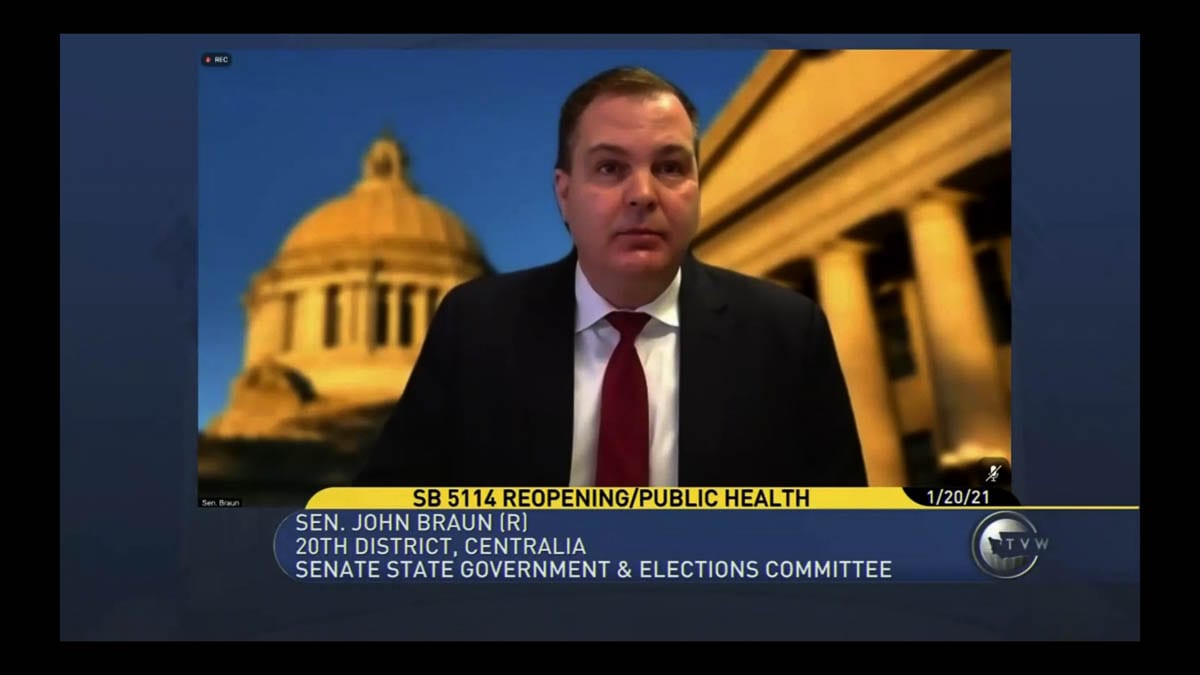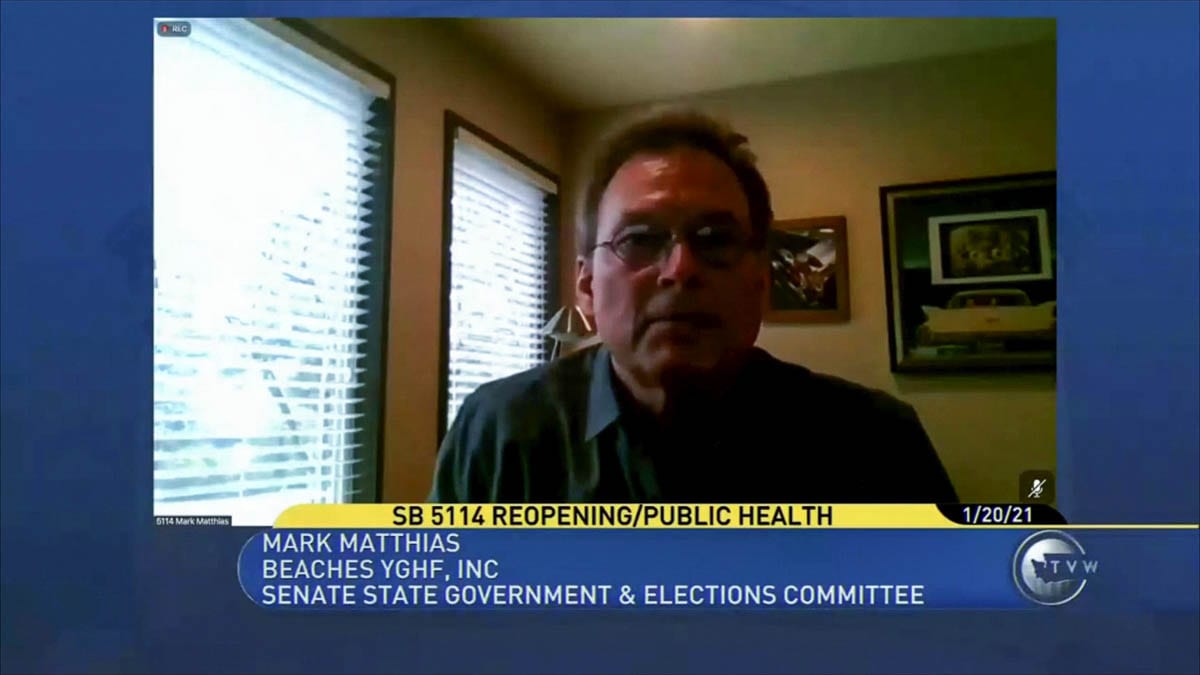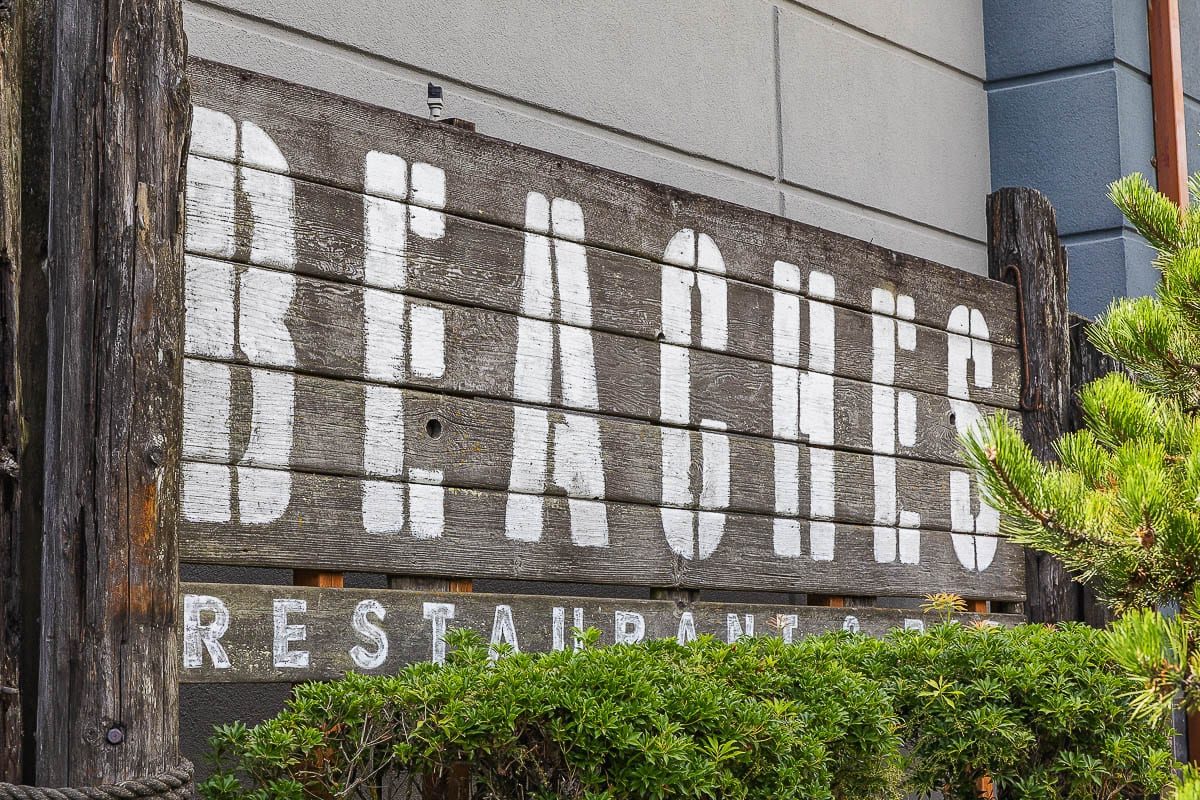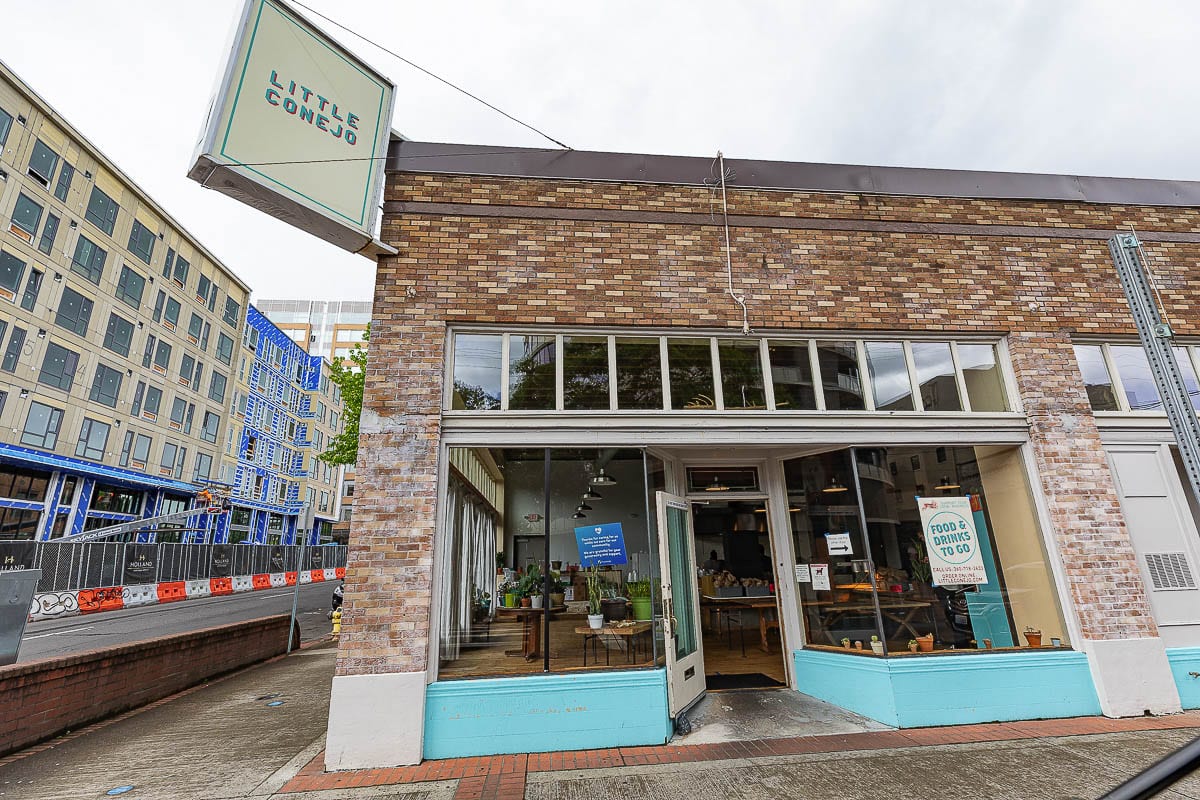Hundreds testified this week in support of Senate Bill 5114, which would immediately move the state into Phase 2 of the governor’s reopening plan
OLYMPIA — More than 1,600 people signed up to voice their opinion about a proposed bill from Sen. John Braun (R-Centralia), whose 20th District includes part of North Clark County.
Senate Bill 5114 would force the state to move immediately to Phase 2 of Gov. Jay Inslee’s Healthy Washington Roadmap to Recovery, which went into effect Jan. 8.

To date, none of the eight regions outlined in that plan have qualified to move beyond Phase 1.
That means indoor dining for restaurants remains off limits, and fitness clubs are limited to no more than one person per 500 square feet indoors at any one time.
The majority of the several dozen people who managed to testify during the Senate Committee on State Government and Elections meeting Wednesday morning were in support of the legislation, which Braun said would allow businesses to reopen “safely” with “optimism that they can protect their employees and their customers, and keep their staff safe.”
In her comments opposing SB 5114, Lacy Fehrenbach, deputy secretary for COVID response with the Washington Department of Health, said the state still had a duty to protect healthcare workers and make sure hospital systems are not overloaded with patients.
“Where we are as a state right now is what some national experts call the circuit breaker phase,” Fehrenbach told the committee. “We know that this is difficult. However, I want to remind you that the work Washingtonians are doing, our private sector and government leaders, is making a difference and saving lives.”
Washington, which saw the first cases of COVID-19 in the United States nearly a year ago, and 37 of the first 50 deaths in the country, currently ranks 44th out of 50 states in deaths per 100,000 people.
“The Department of Health has concerns about this bill, with cases rising and hospitalizations rising,” said Fehrenbach. “We do not believe the state is ready to move forward.”
Several employees in healthcare also spoke out, saying they were concerned that reopening businesses too quickly could overwhelm hospitals and put them at further risk.
“My hospital is currently at 94 percent capacity for adult ICU beds and we are expecting a further spike from gatherings held over Christmas,” testified Kat Wood, a healthcare employee in Tacoma. “We all have COVID-19 fatigue, and reopening our economy is vital but we must follow science and data and not open the entire state arbitrarily.”
Business owners pushed back, however, arguing that case rates continued to increase following indoor dining and gyms being closed in March, and then again in November.

“A few industries are held accountable for a spike that we did not create,” argued Mark Mathias, owner of Beaches Restaurant in Vancouver and a vocal critic of the governor’s decision to impose restrictions on the industry. “It is impossible to operate under the new metrics knowing if anyone spikes the counts, we get closed.”

Michael Dynes, co-owner of Little Conejo in Vancouver, said he was supportive of the restrictions at first, but “as the numbers continued to surge with restaurants still shut down, I just find that the logic is sort of muddy.”
Dynes said the business was able to get financial support in the first round of the government’s Payroll Protection Program (PPP), all of which went to pay their employees, but didn’t qualify in the latest round since revenues hadn’t fallen by more than 25 percent in the past year.

“I feel that it’s our staff that’s being penalized and I will probably lose them,” Dynes said, “because other restaurants who can prove that will go out there and get good employees.”
Brian McMenamin, whose family owns 56 locations in Oregon and Washington, including three in Clark County, said they have gone from over 3,000 employees before the pandemic, to just over 1,000 right now.
“We watch, as you do, the lack of urgency on the federal level for assistance, but we don’t have to wait,” McMenamin said. “We can assist ourselves. We understand the seriousness of this novel virus, and we diligently complied with all the restrictions set by the government to keep our customers and employees safe.”
That was a theme of many who spoke, arguing that they could reopen at minimum capacity levels and continue to keep employees and customers safe.
During a Department of Health press conference on Thursday, Dr. Scott Lindquist, the state epidemiologist for communicable diseases, argued their data shows restaurants are a key contributor to outbreaks around the state.
“The number one outbreak category, outside of long-term care facilities, is restaurants and bars,” Lindquist said. “And when they closed, we saw a decrease in these outbreaks.”
According to the most recent outbreak report from the state, there have been a total of 239 outbreaks (defined as two or more cases linked to a single location) connected to food service or restaurant establishments, though only five statewide during the week of Jan. 3.
“Even with bars and restaurants closed, with takeout we’ve seen 19-plus outbreaks in employees of restaurants,” said Lindquist, who admitted that the state was unaware of any recent instances in which restaurant customers had been infected.
Still, businesses say the economic cost to the state of their remaining closed, sometimes permanently, needs to factor more strongly into the state’s decision-making process.
“We are ready and willing to follow all the safety guidelines that were put in place before,” Mathias said. “We can actually make a difference and make the public safer.”
The bill also has the support of Southwest Washington Senators Lynda Wilson and Ann Rivers.
Public testimony was ended due to time constraints, though committee chair Senator Sam Hunt (D-Olympia) said he expected the public would have several other opportunities to have their voices heard before any decision was made.




